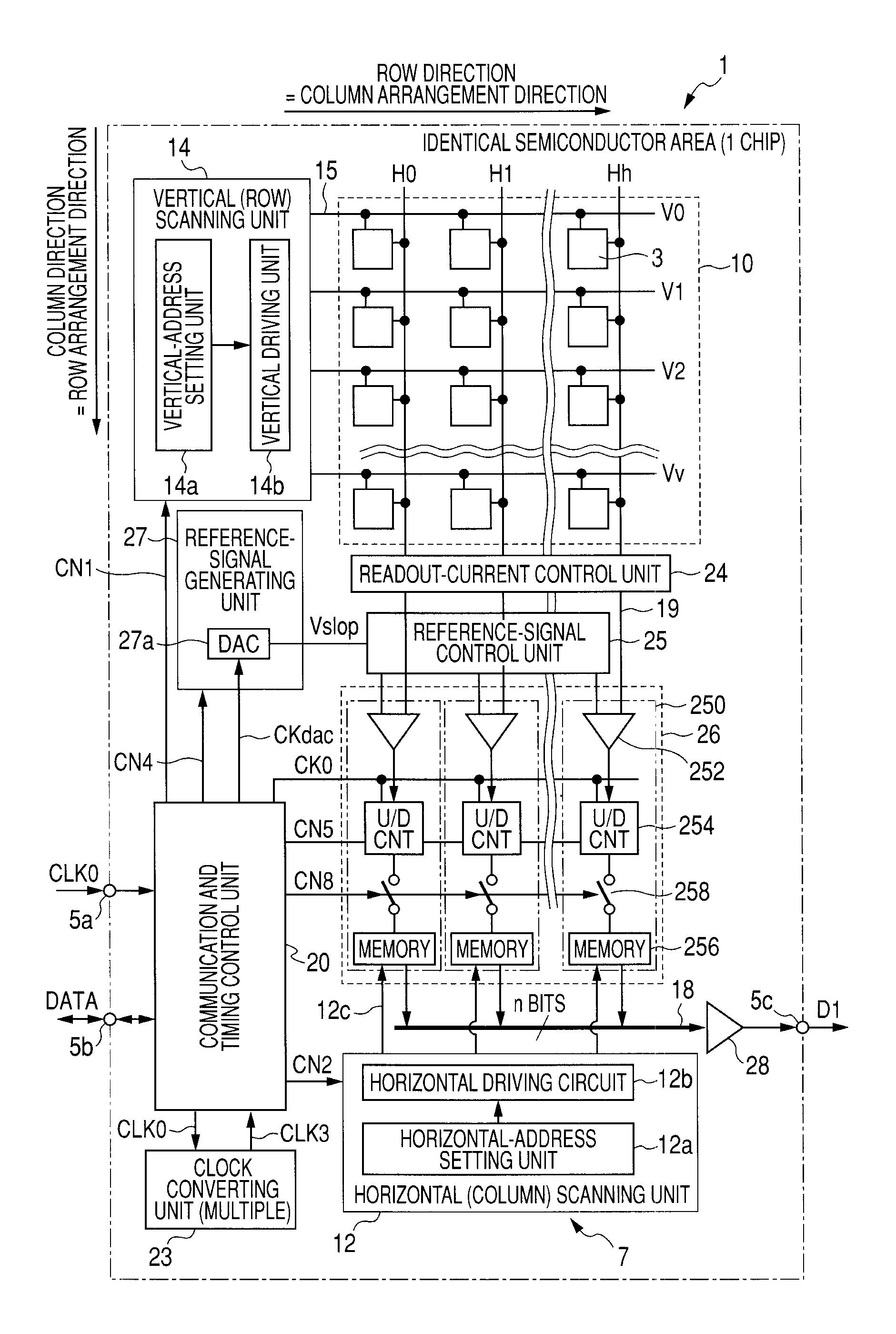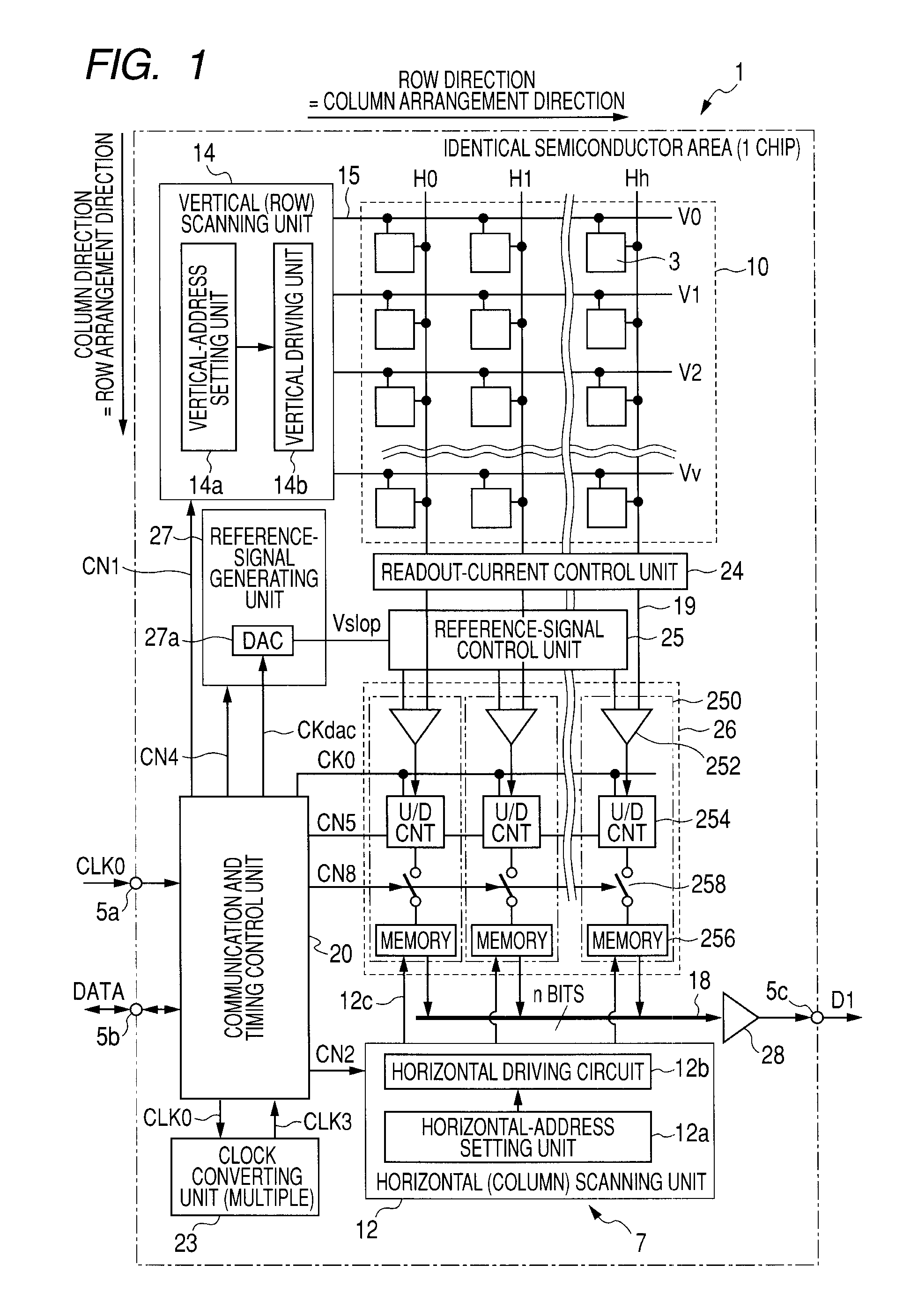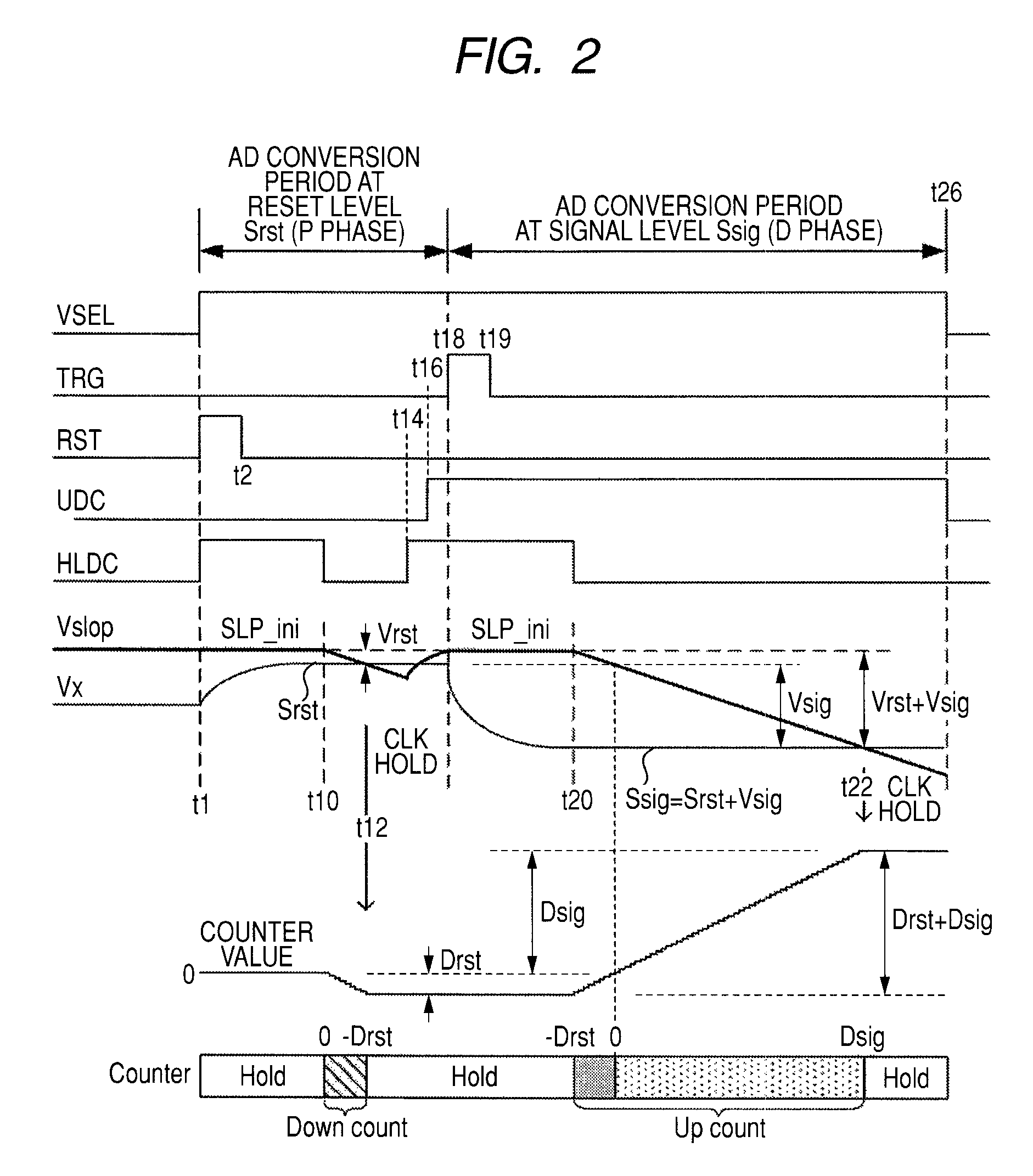Solid-state imaging device and apparatus with an increased speed of analog to digital conversion
a technology of solid-state imaging and analog to digital conversion, which is applied in the direction of radio frequency controlled devices, television systems, instruments, etc., can solve the problems of increased conversion processing speed, limited frame rate, and poor conversion performance of ads, so as to reduce the time necessary for comparison processing in the comparing unit, the effect of increasing the speed of ad conversion processing
- Summary
- Abstract
- Description
- Claims
- Application Information
AI Technical Summary
Benefits of technology
Problems solved by technology
Method used
Image
Examples
first example of first embodiment
[0167]FIGS. 4 to 6 are diagrams for explaining AD conversion processing of a reference signal comparison type according to a first example of a first embodiment of the present invention. FIG. 4 is a circuit block diagram for explaining an example of the structure around the reference-signal control unit 25 applied to the AD conversion processing of the reference signal comparison type according to the first example of the first embodiment. FIGS. 5A and 5B are functional block diagrams for explaining details of the DA converter 27a applied to respective kinds of AD conversion processing of the reference signal comparison type according to the first example of the first embodiment and a comparative example. FIG. 6 is a diagram for explaining an operation principle of the AD conversion processing of the reference signal comparison type according to the first example of the first embodiment and shows a relation between two kinds of reference signals Vslop_1 and Vslop_2 and the pixel sig...
third example of first embodiment
[0206]FIG. 9 to FIGS. 11A and 11B are diagrams for explaining AD conversion processing of a reference signal comparison type according to a third example of the first embodiment. FIG. 9 is a circuit block diagram for explaining an example of the structure around the reference-signal control unit 25 applied to the AD conversion processing of the reference signal comparison type according to the third example of the first embodiment. FIG. 10 is a functional block diagram for explaining details of the DA converter 27a applied to the AD conversion processing of the reference signal comparison type according to the third example of the first embodiment. FIGS. 11A and 11B are diagrams for explaining an operation principle of the AD conversion processing of the reference signal comparison type according to the third example of the first embodiment and show a relation between four kinds of reference signals Vslop_1, Vslop_2, Vslop_3, and Vslop_4 and the pixel signal voltage Vx.
[0207]In the ...
fourth example of first embodiment
Generalization
[0234]FIG. 12 is a diagram for explaining AD conversion processing of a reference signal comparison type according to a fourth example of the first embodiment and shows M kinds of reference signals Vslop.
[0235]Plural kinds of reference signals Vslop, a voltage difference between adjacent one of which is 1 LSB, are used. In the first example, an AD conversion period is reduced to a half by changing the reference signals Vslop in a 2 LSB step. In the third example, an AD conversion period is reduced to a quarter by changing the reference signals Vslop in a 4 LSB step. By developing the forms of these examples, eventually, as a processing form of the first embodiment, an AD conversion period can be reduced to ½^n by using plural kinds of reference signals Vslop, a voltage difference between adjacent ones of which is 1 LSB, and that change stepwise, and setting a minimum step width of the reference signals Vslop based on the count clock CKdac to 2^n LSB (n is a positive in...
PUM
 Login to View More
Login to View More Abstract
Description
Claims
Application Information
 Login to View More
Login to View More - R&D
- Intellectual Property
- Life Sciences
- Materials
- Tech Scout
- Unparalleled Data Quality
- Higher Quality Content
- 60% Fewer Hallucinations
Browse by: Latest US Patents, China's latest patents, Technical Efficacy Thesaurus, Application Domain, Technology Topic, Popular Technical Reports.
© 2025 PatSnap. All rights reserved.Legal|Privacy policy|Modern Slavery Act Transparency Statement|Sitemap|About US| Contact US: help@patsnap.com



